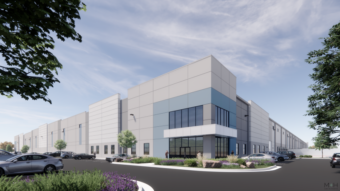The popularity of flexible office space is growing in Chicago, and companies such as Regus are capitalizing on the opportunity. The company has experienced double-digit growth year-over-year in the Chicago region, with 29 flexible office locations in the Chicago area.
Scott Nelles, regional director for Regus, recently discussed the growing demand for flexible office space and the advantages that “co-working” offers to businesses.
Q. What is prompting the growth in flexible office space?
A: The Chicago market for Regus has been pretty strong for a number of years. We’re seeing a lot more demand in the marketplace, especially for people who are looking for more flexible workplace solutions. The demand has been steadily improving over the last couple of years as we’ve been moving out of the recession. It’s prompted us to look at opening up more locations and serving more people in the Chicago area.
Q. What is attracting these companies to Chicago?
A: There are a couple of interesting trends that we’re seeing. One is we’re seeing a lot more new businesses coming into the market, whereas in the past couple of years, there were a lot of people just shuffling space. They were moving from one place to another place trying to get a better deal on renewals. We’re starting to see a significant change in that today, from the Fortune 500 type companies to tech companies that are expanding rapidly and to business startups that are looking to get into a new market or startup a new business here in Chicago.
Q. Why are tech firms particularly interested in flexible office space?
A: I think that tech firms are starting up. You’re seeing a lot more investment in business startups, so they need to get office space quickly and not worry about that piece of their business and really focus on growing their business as quickly as possible and establishing their market presence. That’s one piece of it. The other piece is you’re seeing companies that over the past couple of years have centralized some of their sales efforts are now decentralizing and getting back into markets and establishing more of a local presence as they build up sales teams.
Q. What are some of the amenities businesses are finding in the Chicago area?
A: The Chicago market is a huge market with 9 million people who live in the area. There is a tremendous amount of talent in the marketplace. I think that’s why Chicago continues to be a hotbed for companies. There also are a number of different of options that they have and places where they can locate their business within the Chicago market to attract those people.
Q. What are some of the advantages of flexible office space?
A: Some of the biggest advantages are that a company doesn’t have to spend a whole lot of money and a whole lot of time to establish a presence immediately in a market like Chicago or anyplace that there is a Regus center. What Regus allows businesses to do is come into a market with limited capital outlay or no capital outlay at all and bring in their workforce and immediately establish their presence. They can focus on their core competencies instead of running the office.
From a flexible standpoint, what Regus is able to offer is the ability to work however, wherever and whenever they want. For example, you have a sales force that you’re starting up in the Chicago area, and these people may be all over the place. They may be having appointments throughout the entire Chicago area, or maybe they’re travelling outside of the Chicago market and they don’t necessarily need to have a place that they call their own every single day.
Why would a business need to pay for office space 24 hours a day, seven days a week for every single person they have if not everybody is there all the time? There’s a tremendous value in what we call co-working or where there’s one company that has multiple people coming in and out of an office – the “hoteling” concept. Some companies don’t even need the office space at all, but they just want a legitimate business address and they want a phone number. That’s what we call a virtual office. There are some companies that don’t even need the address or a phone. They just need an office that they need to be able to pop into whenever they need it.
Q. Do you expect the type of demand for this type of space to continue in 2012?
A: I think that this is a growing trend that we’re going to see in the marketplace that’s not likely to reverse itself. With Internet and phone being as ubiquitous as they are today, people are no longer tethered to their office. I think it offers enormous flexibility to the mobile worker.



